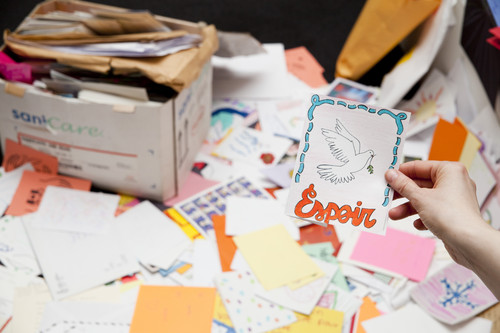 It was remarkable and most disheartening to watch the spat between federal Immigration Minister Chris Alexander and Ontario Health Minister Deb Matthews last week. The bone of contention was Ontario’s decision to step in and provide health care for those refugee claimants who have been cut off of coverage under the federal government’s longstanding refugee health care program.
It was remarkable and most disheartening to watch the spat between federal Immigration Minister Chris Alexander and Ontario Health Minister Deb Matthews last week. The bone of contention was Ontario’s decision to step in and provide health care for those refugee claimants who have been cut off of coverage under the federal government’s longstanding refugee health care program.
The federal government announced the cuts almost two years ago. The motivation was clearly punitive. They hoped that by cutting back on health care coverage some refugee claimants would be dissuaded from coming to Canada to make claims. Fundamental, internationally-enshrined human rights are at stake, including the rights to access health care, to be free from discrimination and to be protected as a refugee. Instead, the government had decided to play politics with health care; health care for a particularly vulnerable group in society.
The federal cuts meant that all refugee claimants were cut off from coverage for medication, vision and dental care. But more extreme, claimants coming from one of the so-called “safe” countries of origin designated by the government are ineligible for any health care coverage, even in urgent, life-threatening situations. They only receive treatment if they pose a public health risk to others. 37 countries are on that designated list, including Mexico which Amnesty International has repeatedly highlighted is facing a spiraling human rights crisis, and various Central European countries where the Roma community faces widespread discrimination and frequent violence.
Minister Matthews said that Ontario could not and would not sit and watch as people lawfully in the province, with pressing health care needs, were made to suffer. She was following several other provinces that have already taken that step.
It might have been nice to hear Minister Alexander sheepishly thank Ontario for stepping up and fulfilling Canada’s international human rights obligations. Okay, that is expecting a bit much. But surely she did not deserve to be lambasted for intruding into federal jurisdiction (conveniently overlooking that while the federal government is responsible for immigrants and refugees, health care is explicitly a provincial constitutional power) and interfering with the government’s agenda to deter “bogus” refugees.
How galling, once again, to see our highest officials using the crass and hurtful rhetoric of bogus refugees as a basis for Canadian law and policy. We must call out the Minister, and must call out any and all public officials, when they use this inflammatory term, bogus, to talk about refugees. It gets bandied about as if it has some sort of precise legal definition; which it does not. It does not appear in any legislation or any international treaty.
Since it has no real meaning, what does the Minister mean when he uses it? Refugee claimants the government doesn’t like? Coming from countries the Minister wishes they wouldn’t leave? Whose claims get rejected? Rejected on what basis? Because they weren’t believed? Because their problems, though genuine, don’t fit the legal technicalities of the refugee definition? Because a decision-maker was not prepared to agree that human rights problems are real and serious in their country? Because they are a war criminal and thus, while having a valid fear of persecution, are not eligible for refugee status? Because conditions back home have changed since they left? Or because they couldn’t come up with enough documents to prove their story?
On and on this list of possible scenarios could go. That is because there are so many twists and turns along the refugee journey; so many twists and turns in what is, after all, a human journey. To somehow crassly sum up all those who don’t get refugee status in the end as being ‘bogus’ is unfair, pejorative and plain wrong. To see it then used further to justify measures like health care cuts, which violate rights, is a disgrace. It is clearly used in an effort to undermine public sympathy for refugees. What of the days when public officials instead, sought to foster compassion and understanding. Derisive and mean-spirited refugee politics have to stop.
Provincial governments are shaming the federal government by righting this wrong and ensuring health care is in place. A legal challenge is also underway, meaning that the Courts will soon have their say. Health professionals have been vocal in their opposition, with all of the major Canadian medical organizations now having called on the federal government to reverse the cutbacks.
Rights are at stake. That can’t be justified by a desire to save money. It can’t be justified by a policy of deterring refugees from coming to Canada. It certainly can’t be justified by dismissively asserting that those whose rights are being violated are bogus and thus of no concern.
When rights are at stake there is only one course of action. Uphold the rights. And you can write to the Minister right now, demanding that he do just that:
http://www.amnesty.ca/refugeehealthcare
Guest Blogger: Alex Neve, Secretary General, Amnesty International Canada












